 Petzlover
Petzlover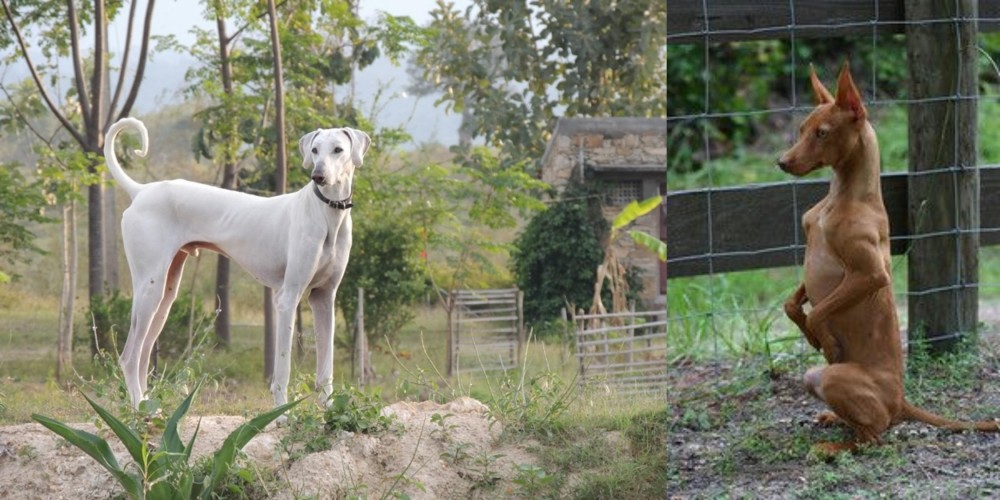 Chippiparai is originated from India but Podenco Andaluz is originated from Spain. Chippiparai may grow 10 cm / 4 inches higher than Podenco Andaluz. Both Chippiparai and Podenco Andaluz are having almost same weight. Chippiparai may live 3 years more than Podenco Andaluz. Both Chippiparai and Podenco Andaluz has almost same litter size. Both Chippiparai and Podenco Andaluz requires Low Maintenance.
Chippiparai is originated from India but Podenco Andaluz is originated from Spain. Chippiparai may grow 10 cm / 4 inches higher than Podenco Andaluz. Both Chippiparai and Podenco Andaluz are having almost same weight. Chippiparai may live 3 years more than Podenco Andaluz. Both Chippiparai and Podenco Andaluz has almost same litter size. Both Chippiparai and Podenco Andaluz requires Low Maintenance.
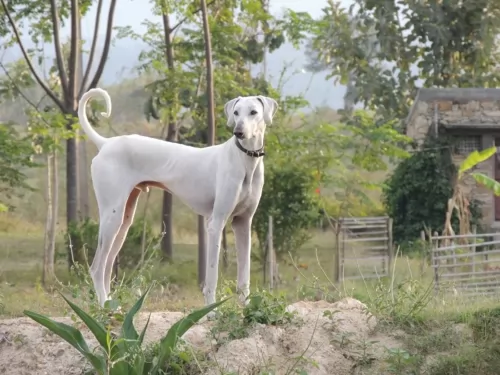 The Chippiparai is a working dog found in India and until recently there has been little interest in the purity of any breed, but rather only an emphasis on the abilities of the dog. They are only beginning to research the origin and history of their native dogs such as the Chippiparai. Not much is known about the origin of the breed except that it is found almost exclusively in Tamil Nadu and Keraia in the southern part of the subcontinent of India. Other than this there is much speculation about the breed’s origin but very little-known facts. It is indeed an ancient breed; however, its origin could be thousands of years ago or simply hundreds of years ago.
The Chippiparai is a working dog found in India and until recently there has been little interest in the purity of any breed, but rather only an emphasis on the abilities of the dog. They are only beginning to research the origin and history of their native dogs such as the Chippiparai. Not much is known about the origin of the breed except that it is found almost exclusively in Tamil Nadu and Keraia in the southern part of the subcontinent of India. Other than this there is much speculation about the breed’s origin but very little-known facts. It is indeed an ancient breed; however, its origin could be thousands of years ago or simply hundreds of years ago.
• Perhaps it is a descendant of the Saluki as it resembles this breed quite a bit. It has been believed for some time that the Saluki is the original sighthound and the source of all sighthound breeds. The Saluki was very popular in the Middle East, especially in Persia and Arabia from which it could easily have spread to India. It would then have been shared from Northern India to Southern India where the Chippiparai is found.
• Perhaps the Chippiparai is a descendent of sighthounds from Central Asia and Afghanistan – the Tazi, Taigan, Hortaya Borsaya or the Afghan Hound. This part of Central Asia had more trade, influence and contact with the Indian subcontinent early in their history than with any other region. The Chippiparai is considered by some to be more like these sighthounds than like the Saluki and the interaction between these regions has a much longer history than the Middle East and India.
• It is also speculated that the Chippiparai might have been developed completely and uniquely from the local street and working dogs. With the civilization of India being one of the oldest in the world, it is considered a possibility that the Chippiparai is the descendent of the Harappan hunting dogs that probably were developed by the Indus Valley or Harappa roiling class.
Wherever the Chippiparai came from, they were the exclusive property of the wealthy and ruling castes. These upper castes were the only ones that could legally hunt with dogs or afford to feed one. The royal classes of Tiruneivell, Thanjavur, and Madurai all fed the popularity of the breed among the upper castes. They were coursing dogs used to chase down the prey once it was sighted. The Chippiparai are incredibly fast runners and would catch almost any prey and either hold it or kill it for their hunter. The Chippiparai, when not hunting, had to be chained so they would not chase any small animal that they saw. This confinement also added to the purity of the breed as random breeding was prevented.
The southern part of the Indian subcontinent is extremely hot with routine temperatures over 100’. The Chippiparai was developed to withstand these extreme temperatures and is more heat tolerant than most any other breed. They also need very little food and are resistant to the many parasites and diseases found in southern India.
Harboring the belief that Indian dogs were not as good as European ones, the occupying countries of Portugal, France, and Britain, had no interest in the Chippiparai, again leaving the breed to develop naturally on their own with little or no interbreeding. They also received no formal recognition because Indian culture only valued the dog for its working abilities. There was no Indian Kennel Club until 1956.
The Chippiparai is now very rarely and only found in the area of its birth. Many believe the breed is in danger of becoming extinct and even though it is now registered with Indian Kennel Clubs it is not often shown in their dog shows. Lovers of the breed are now attempting to get Indians to recognize that the Chippiparai is a great companion animal and attempting to save the breed.
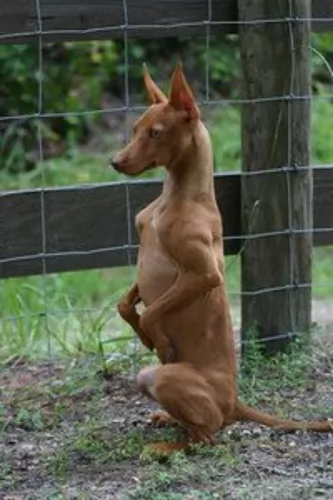 The Podenco Andaluz hails from the Andalusian region of southern Spain. It is believed that this dog is likely to have descended from the European hunting dog.
The Podenco Andaluz hails from the Andalusian region of southern Spain. It is believed that this dog is likely to have descended from the European hunting dog.
Because of the lack of distinctive characteristics, and also the similarities the dog shares with other dog breeds, the dog isn’t typically recognized in its own right. They have always been used as hunting dogs. The Andaluz is actually one of the lesser known Podencos and it isn’t recognized by the FCI.
 The Chippiparai is a typical sighthound although their size and appearance will vary more than that of registered purebred sighthounds. Typically, they will have a long, domed head with small erect ears and dark eyes. Their muzzle will be as deep and wide as the skull but longer. Their legs are straight and long, their chest is roached back and deep, giving them, an appearance very similar to a greyhound or other sighthound.
The Chippiparai is a typical sighthound although their size and appearance will vary more than that of registered purebred sighthounds. Typically, they will have a long, domed head with small erect ears and dark eyes. Their muzzle will be as deep and wide as the skull but longer. Their legs are straight and long, their chest is roached back and deep, giving them, an appearance very similar to a greyhound or other sighthound.
They have a long curly tail, and their coat can vary greatly in color. They are medium sized, and their coat is short, shiny and close. He is very slender and sleek, which along with his long legs gives him that incredible speed. They are thin with visible ribs.
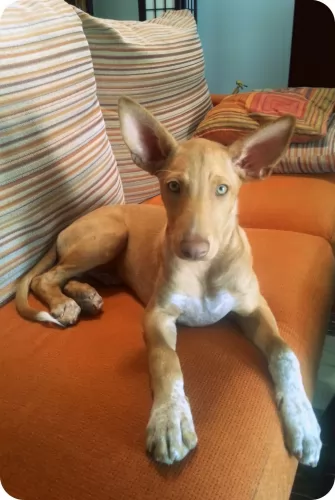 There are three different Andalusian Hounds - small, medium and large, but for the sake of space, we refer to the medium sized dog. The medium sized dog stands at between 42 and 53cm and weighs roughly 20 – 22kg.
There are three different Andalusian Hounds - small, medium and large, but for the sake of space, we refer to the medium sized dog. The medium sized dog stands at between 42 and 53cm and weighs roughly 20 – 22kg.
The dog has short hair, large erect ears and a long tail. Regarding color, most of these dogs are a reddish brown or plain brown color with some having patches of white.
The Andaluz is a dog which is reserved with strangers, but with their owners they are loyal and loving and never aggressive. The Andaluz is considered a one-man dog but he is more than capable of showing love and affection for all members of his human family.
This dog will benefit from training and socialization as this makes him more sure of himself and more obedient. He is an intelligent dog and won’t battle to learn simple commands. You’ll find your Podenco Andaluz to be sweet, calm and gentle indoors with training. He loves to lie close up to you,preferably on the couch right next to you!
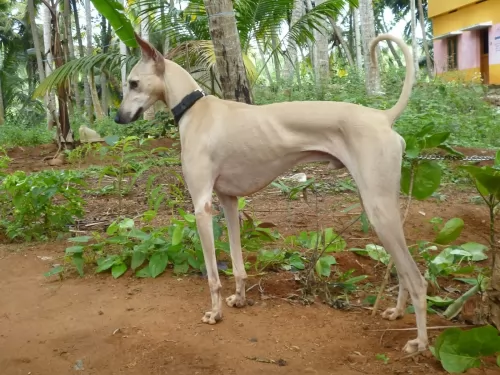 The Chippiparai is a loving, gentle family dog if well socialized, well trained and well exercised. They are very intelligent and need human companionship. Once they are living with a human family, they are very protective of that family. They are for the most part peaceful and quiet dogs. They are loyal and loving but they are not overly affectionate. Cuddlers they are not, and they do not like to play rough with children.
The Chippiparai is a loving, gentle family dog if well socialized, well trained and well exercised. They are very intelligent and need human companionship. Once they are living with a human family, they are very protective of that family. They are for the most part peaceful and quiet dogs. They are loyal and loving but they are not overly affectionate. Cuddlers they are not, and they do not like to play rough with children.
Accepting and loving within the family, the Chippiparai are equally hesitant and shy around strangers. They can be suspicious, but they are not aggressive. They are just very aloof with strangers, yet they hardly ever bark.
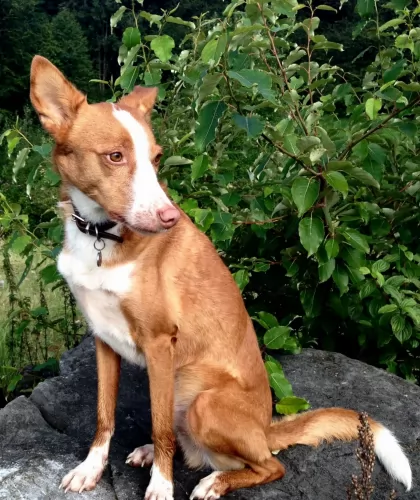 This dog has always been a hunting dog, and an excellent one at that. These days he is also a companion animal. It is very sad that these dogs have been given a cruel deal in Spain.
This dog has always been a hunting dog, and an excellent one at that. These days he is also a companion animal. It is very sad that these dogs have been given a cruel deal in Spain.
For those that make it into a loving home, they have proved to make excellent low maintenance dogs who are willing to provide their human family with faithful love and companionship that only a dog can provide.
 There are no clinical studies regarding the health and health history of the Chippiparai, so little is known about their long-term health. However, most who know the breed, believe it is an incredibly healthy one. They seem to have a lot less genetically transmitted health issues than other purebreds. Because of their isolation for centuries in India, they have developed immunities and resistance to most parasites and diseases other dog suffer from.
There are no clinical studies regarding the health and health history of the Chippiparai, so little is known about their long-term health. However, most who know the breed, believe it is an incredibly healthy one. They seem to have a lot less genetically transmitted health issues than other purebreds. Because of their isolation for centuries in India, they have developed immunities and resistance to most parasites and diseases other dog suffer from.
Because of this you should look for the types of issues that occur in dogs of this size and build. Have them tested by the Canine Eye Registration Foundation and the Orthopedic Foundation for Animals.
 Your Podenco Andaluz is a robust dog breed and doesn’t battle with any health conditions. However, having said that, every dog can battle with some of the more common dog illnesses, and then your dog may well have to visit the vet.
Your Podenco Andaluz is a robust dog breed and doesn’t battle with any health conditions. However, having said that, every dog can battle with some of the more common dog illnesses, and then your dog may well have to visit the vet.
Remember, that to give your dog the best chance, the dog should receive vaccinations to protect him from some life-threatening diseases.
This disease is brought about by the protozoan parasite Leishmania. The dog gets into trouble with this disease when sand-flies transmit parasites into the skin of the dog. The disease spreads to most organs, with kidney failure being the most common cause of death.
This is a fatal disease that is contracted through the bite of an infected mosquito. It is serious and will require veterinary intervention as its a disease that can create problems with the animal’s heart.
This is a fatal viral disease that can be passed on to your pet and affects the central nervous system. A dog with rabies is nearly always a dead dog, sadly. Symptoms include excess drooling, aggression and seizures.
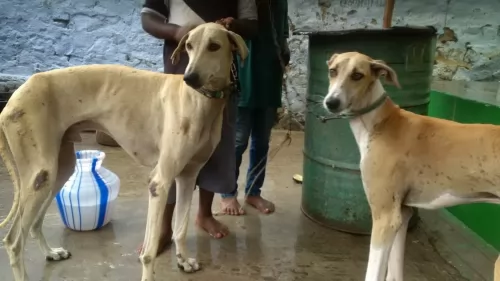 Do not overfeed your Chippiparai. Feed twice a day and no more than a total of 2.5 cups of high quality dry food.
Do not overfeed your Chippiparai. Feed twice a day and no more than a total of 2.5 cups of high quality dry food.
As mentioned previously the Chippiparai seems to have no genetic diseases or issues and very few acquired ones. However, he is sensitive to anesthesia and some foods. He is intolerant to cold weather and has a hard time with his pads on hard surfaces. Some Chippiparai might experience some of the ailments other breeds like them experience.
Both Elbow and hip are possible. This can cause arthritis and lameness. This occurs when the bone does not fit well into the joint.
This can cause lameness as well. The kneecaps slide over the knee instead of staying in place.
This is a hunting dog and he will want to hunt. They are incredibly fast and need the opportunity to run. Brisk walks will not be enough for this dog. He is very energetic. They will chase any small animals. It is not recommended that you have small pets even small dogs or cats with a Chippiparai. Having been bred for centuries to hunt, they are not likely to respond to any commands if they are off lease and chasing prey. Do not allow them to be off leash unless in a fenced area, and that fence needs to be 8 feet tall as they can easily jump a seven-foot fence. Try they at coursing, agility, fly ball and frisbee competitions.
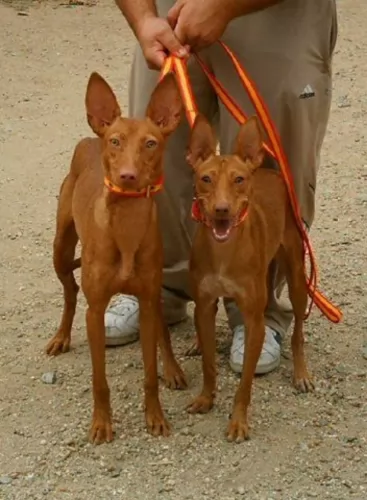 This has always been a hunting dog so he is used to running long distances. He is best suited to life in the countryside as opposed to life on a small property in the city. You will certainly need to take him on walks. If you are lucky enough to live near the beach, you can take bat and ball and hit the ball hard with the beach-bat, allowing your dog to race at top speed to fetch it.
This has always been a hunting dog so he is used to running long distances. He is best suited to life in the countryside as opposed to life on a small property in the city. You will certainly need to take him on walks. If you are lucky enough to live near the beach, you can take bat and ball and hit the ball hard with the beach-bat, allowing your dog to race at top speed to fetch it.
Regular brushing, at least twice a week will be required for the Podenco Andaluz. It’s a good idea to check your dog over for any odd lumps and for ticks and fleas. Keep his nails trimmed and check his ears and eyes for infection.
Every dog requires a good diet if good health and longevity are to be expected. Always check the labels of commercially manufactured dog foods to ensure that your dog gets a good dose of protein in.
The best quality foods have a good balance of vitamins and minerals in them, whereas some of the poorer quality foods have bad ingredients such as preservative, colorants and fillers.
Try and give your dog some wholesome home-made food such as boiled chicken, brown rice or pasta, sweet potatoes, spinach and carrots. Also, some raw meat occasionally will benefit your dog too, after all dogs have always been carnivores.